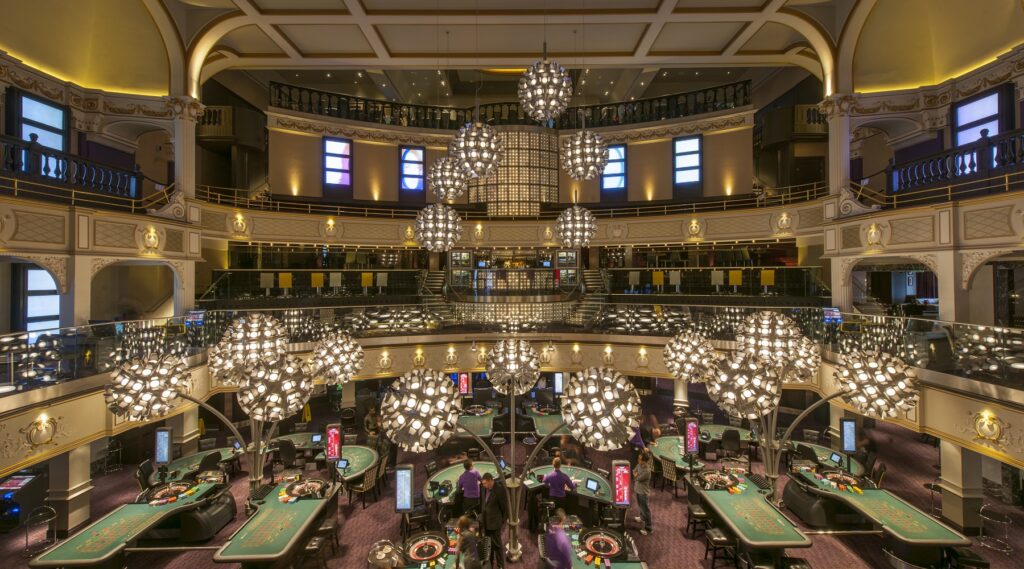Opening a casino can be a highly lucrative business, but it comes with massive upfront costs and strict regulatory requirements. If you’ve ever wondered how much does it cost to open a casino, the answer is: it depends on several factors—location, scale, licensing, staffing, and design.
This guide explores the various expenses involved in launching a brick-and-mortar or online casino to give you a comprehensive understanding of the investment required.
Startup Costs for a Land-Based Casino
When calculating how much does it cost to open a casino, the largest expenses typically relate to real estate, construction, licensing, and equipment.
Real Estate and Construction
The first major cost is acquiring land or an existing building.
Location is critical—casinos in major destinations like Las Vegas or Macau cost significantly more than those in lesser-known regions.
Expect land acquisition to start around $10 million in low-cost regions and go up to hundreds of millions in high-end zones.
Construction costs depend on the size and style of the casino.
A modest venue with 15,000 to 20,000 square feet might cost around $30 million to build, while large luxury resorts can exceed $500 million.
This includes infrastructure, high-end interior finishes, parking, and security systems.
Gaming Equipment and Technology
Casino games are not cheap to purchase or lease.
Each slot machine costs between $10,000 and $25,000, and a full-floor casino often needs hundreds of them.
Table games like blackjack, poker, and roulette also require custom-built tables, chips, cards, and security systems.
Surveillance systems, digital tracking, player management tools, and payment infrastructure will also run into the millions.
In total, gaming equipment alone can cost $5 million to $20 million for a mid-size venue.
Licensing and Legal Fees
Licensing is one of the most complex and expensive parts of opening a casino.
Each jurisdiction has its own requirements, background checks, and fee structures.
In the U.S., for example, a gaming license can range from $50,000 to several million dollars.
On top of that, you’ll need to hire legal consultants to navigate local laws, zoning permissions, and ongoing compliance—all of which adds another $500,000 to $2 million or more to your budget.
Staffing and Training
Casinos are labor-intensive.
Dealers, pit bosses, cashiers, security personnel, IT staff, maintenance teams, marketing professionals, and customer service reps are all necessary.
For a mid-sized casino with 300 to 500 staff, the annual payroll could be upwards of $10 million.
Initial hiring, recruitment, onboarding, and training may add another $1 million to $2 million in upfront costs.
Marketing and Branding
A casino must establish a strong brand and generate excitement before and after launch.
A pre-opening campaign—including advertising, influencer partnerships, and PR—might cost between $500,000 and $3 million.
Post-launch, you’ll need a regular marketing budget for promotions, events, and player retention programs.
Total Cost of Opening a Land-Based Casino
When considering how much does it cost to open a casino in physical form, the minimum investment is typically around $50 million for a small to mid-size venue.
Luxury or resort-style casinos can easily surpass $500 million in development and operational startup costs.
In summary, your major expenses include:
- Land and construction: $30M–$500M
- Gaming equipment: $5M–$20M
- Licensing/legal: $1M–$5M
- Staffing and training: $1M–$2M upfront (plus $10M/year)
- Marketing: $0.5M–$3M
Costs of Starting an Online Casino
If you’re thinking about a digital version instead, how much does it cost to open a casino online? Significantly less than a physical one—but it still requires a substantial investment.
Software and Platform
Online casinos operate on licensed gaming software.
You can either develop your own platform, which can cost $500,000 to $1 million, or license a white-label solution for $50,000 to $250,000 upfront, plus monthly fees.
You’ll need a responsive website, mobile apps, secure payment systems, player databases, and analytics tools—all of which can push your tech budget toward $1 million.
Licensing and Legal Requirements
Online casinos also require licenses, typically from gaming authorities like Malta, Gibraltar, or Curaçao.
Licensing costs vary from $20,000 to $100,000 depending on jurisdiction.
You’ll also need legal consultants for terms and conditions, privacy compliance (like GDPR), and anti-money laundering procedures.
Marketing and Customer Acquisition
In the online world, marketing is everything.
Search engine advertising, affiliate partnerships, influencer campaigns, and bonuses for new players all come with high acquisition costs.
Most online casinos spend $1 million or more on marketing in their first year.
Security and Payment Infrastructure
Online casinos handle massive volumes of transactions and require ironclad security to protect user data and prevent fraud.
Expect to invest in fraud detection, firewalls, encryption, and ongoing IT monitoring.
Budget at least $250,000 for cybersecurity systems and payment gateway integration.
Total Cost of Opening an Online Casino
So how much does it cost to open a casino online?
On average, you can expect to spend between $1 million and $5 million to get fully operational.
Here’s a quick breakdown:
- Platform/software: $500K–$1M
- Licensing/legal: $100K–$300K
- Marketing: $1M+
- IT/security: $250K–$500K
Final Thoughts
The answer to how much does it cost to open a casino varies significantly depending on whether you’re building a physical venue or launching an online platform.
Brick-and-mortar operations can range from $50 million to half a billion dollars.
In contrast, a well-developed online casino may cost between $1 million and $5 million.
Both models require strong legal compliance, serious marketing efforts, and robust technology to succeed.
Before starting, it’s critical to research local regulations and create a detailed business plan that accounts for all expenses and risks.
Opening a casino isn’t for the faint of heart—but with the right budget and planning, it can be a highly profitable venture.
